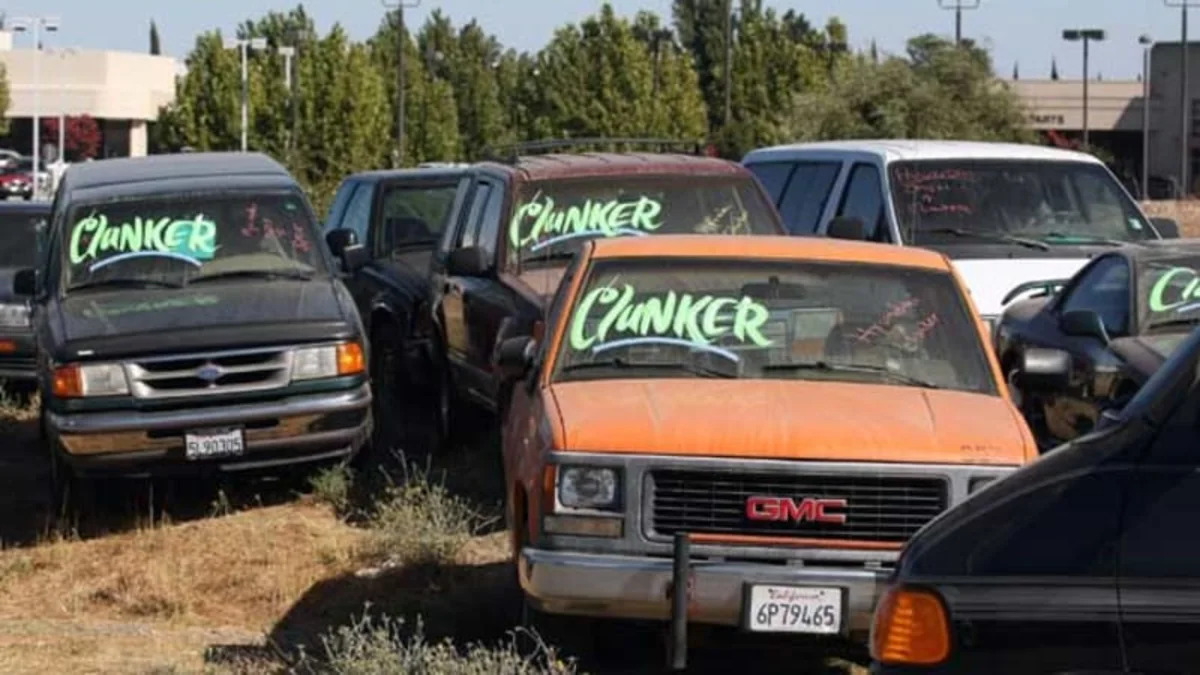According to a Brookings evaluation of the Car Allowance Rebate System (CARS), more commonly known as Cash for Clunkers, the $2.85-billion program cost taxpayers $1.4 million for each of the 3,676 jobs created by it from June to December 2009. The White House reportedly estimated that the program would create 70,000 jobs. Additionally, the evaluation states that more effective alternative fiscal stimulus policies could have been implemented instead of CARS.
The Cash for Clunkers program, in a nutshell, worked like this: if a vehicle was less than 25 years old and met eligibility requirements for fuel economy, the owner could trade in the vehicle, receive a voucher of either $3,500 or $4,500 from the government, and then use the voucher to purchase or lease a new vehicle with better fuel economy. The trade-in vehicles, which were required to be in running condition, then had their engines destroyed. The program was supposed to help stimulate the economy by spurring new-car sales, which would then help create new jobs - and it did. But the cost was just much higher than expected.
Americans traded in about 678,000 vehicles during CARS, and new vehicle sales went up during the program by 14 percent in July 2009 and 28 percent the following August. That equaled a boost of 380,000 vehicle sales, but the evaluation concludes that those sales would have occurred in subsequent months, without help from Cash for Clunkers. The sales rate dropped to pre-program levels after the program expired in September, according to Brookings.
CARS did achieve its other goal of reducing the number of fuel-inefficient cars on the road, but that impact also was negligible, as the new, green, fuel-efficient cars bought within the program reportedly represented about half of a percent of all vehicles in the US.
The Cash for Clunkers program, in a nutshell, worked like this: if a vehicle was less than 25 years old and met eligibility requirements for fuel economy, the owner could trade in the vehicle, receive a voucher of either $3,500 or $4,500 from the government, and then use the voucher to purchase or lease a new vehicle with better fuel economy. The trade-in vehicles, which were required to be in running condition, then had their engines destroyed. The program was supposed to help stimulate the economy by spurring new-car sales, which would then help create new jobs - and it did. But the cost was just much higher than expected.
Americans traded in about 678,000 vehicles during CARS, and new vehicle sales went up during the program by 14 percent in July 2009 and 28 percent the following August. That equaled a boost of 380,000 vehicle sales, but the evaluation concludes that those sales would have occurred in subsequent months, without help from Cash for Clunkers. The sales rate dropped to pre-program levels after the program expired in September, according to Brookings.
CARS did achieve its other goal of reducing the number of fuel-inefficient cars on the road, but that impact also was negligible, as the new, green, fuel-efficient cars bought within the program reportedly represented about half of a percent of all vehicles in the US.


Sign in to post
Please sign in to leave a comment.
Continue